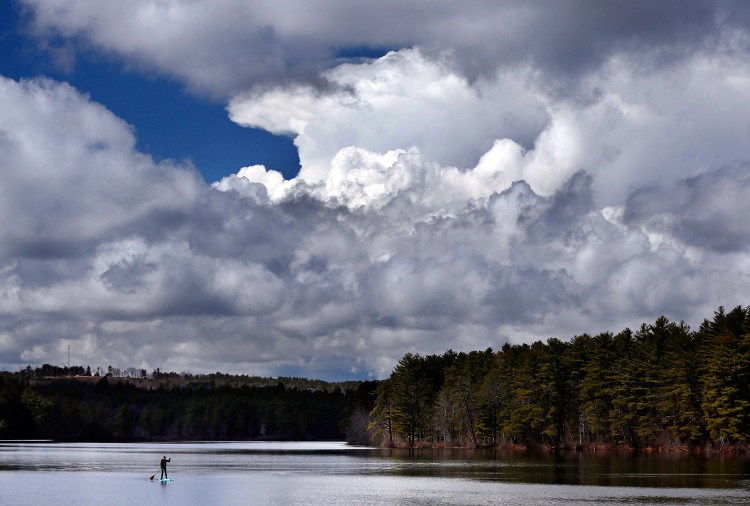ALBANY, N.Y. – No snowpack, no problem.
As an exceptionally warm winter winds down, snowpack is scant around many Northeast mountains. Spring runoff from that snow is normally crucial for maintaining water levels on rivers and reservoirs, but late-winter rain is doing the job of melting snow in many areas, so far.
“It just came in a different form – liquid instead of frozen this year,” said Adam Bosch, a spokesman for New York City’s Department of Environmental Protection, which oversees a network of upstate reservoirs that serves 9 million people.
In an average February, the watershed around the city’s six reservoirs in and around the Catskill Mountains has about 50 billion gallons of water trapped in the snowpack. This February it had zero gallons.
But the Catskill and Delaware watersheds did have a few big rainstorms. So by this week, the reservoirs were close to 95 percent full, which is higher than normal for this time of year, Bosch said.
The Catskills were not the only area that got soaked. The Northeast Regional Climate Center reported above-normal precipitation around the region. “February was like the log flume,” read a post on the Ithaca, New York-based center’s site. “When it ended, most areas were wet.”
In Maine, the Kennebec River basin was above normal and Lake Champlain was more than 18 inches above normal this week, though National Weather Service forecasters expected Champlain would be at its highest level given the lack of remaining snow to melt.
Snow cover was thin to nonexistent in northern New York and Vermont and less than 10 inches in the highest elevations, the weather service reported Thursday. A separate report from New York environmental officials said snow on some Adirondack summits was a foot or more.
In North Creek in the Adirondacks, recent above-average readings on the upper-Hudson River were a positive sign for the North Creek Rafting Company as owner Nate Pelton prepared for the spring season coming in two weeks. Adirondack rafters depend on “big water” in the spring boosted by snow melt.
Pelton said he’s not too concerned about dropping levels this spring since Hudson rafting is helped along by controlled dam releases upstream. But he noted that spring rafting on the nearby Moose River is more dependent on snow melt, and it’s possible the spring season there will be shorter.
“We’re hoping for rain, for sure,” he said.
The recent rains came at the end of a warm winter that set records in some places. Airport climate sites in Albany, New York; Burlington, Vermont; Caribou, Maine; Concord, New Hampshire; and Providence, Rhode Island, recorded their warmest winters on record, according to the Northeast Regional Climate Center.
Send questions/comments to the editors.



Success. Please wait for the page to reload. If the page does not reload within 5 seconds, please refresh the page.
Enter your email and password to access comments.
Hi, to comment on stories you must . This profile is in addition to your subscription and website login.
Already have a commenting profile? .
Invalid username/password.
Please check your email to confirm and complete your registration.
Only subscribers are eligible to post comments. Please subscribe or login first for digital access. Here’s why.
Use the form below to reset your password. When you've submitted your account email, we will send an email with a reset code.